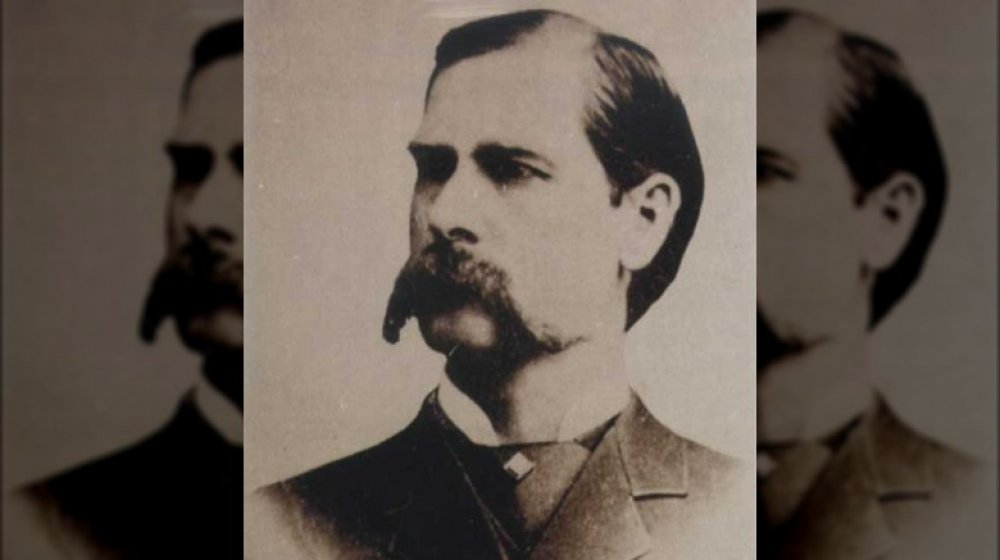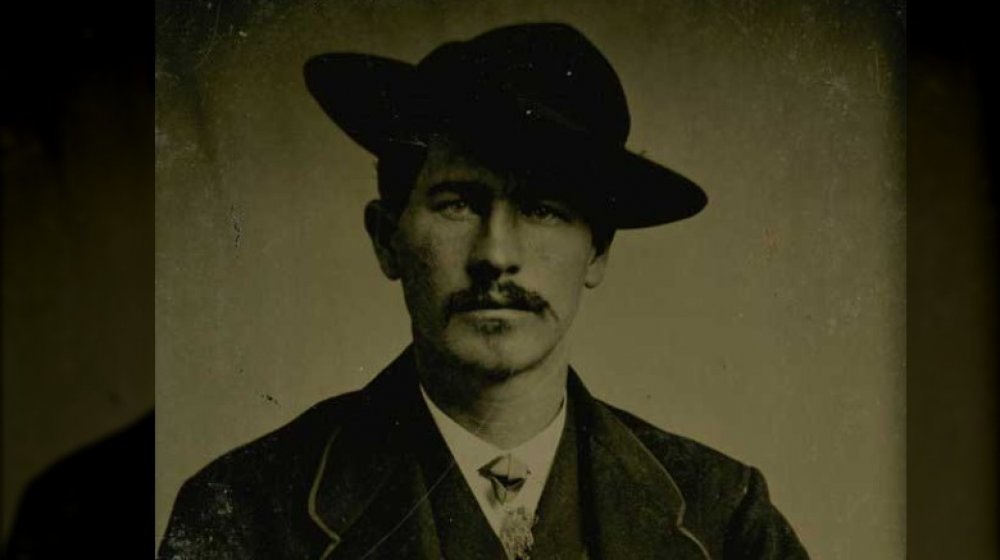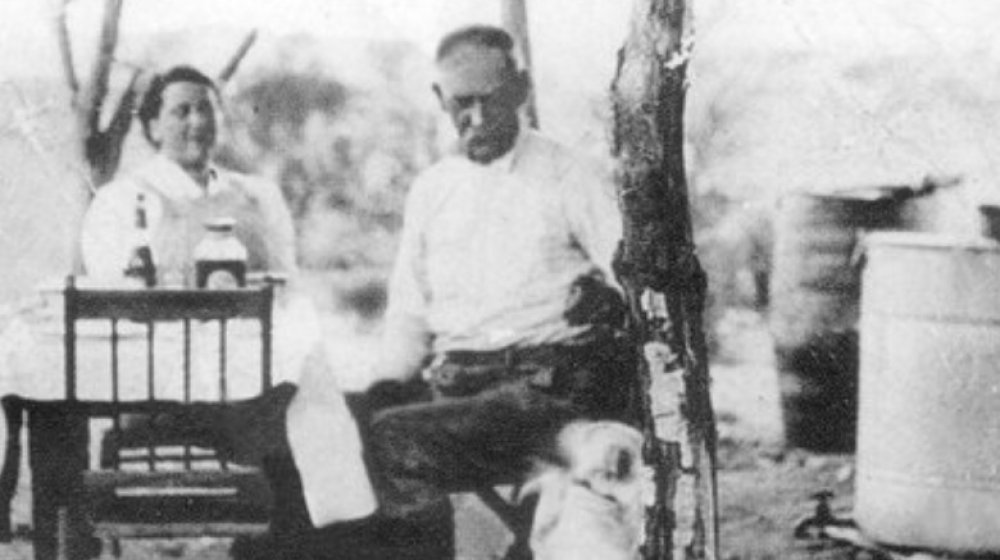Myths About Wyatt Earp You Can Stop Believing
Get famous enough, your life and legend are no longer your own. Did it really happen, or is it a good story that should have happened? (Or shouldn't have, for that matter; as Mark Twain commented, "reports of my death are greatly exaggerated," Mental Floss reminds us.) Sometimes people play into it and pile it on for their own amusement. Wild Bill Hickok entertained listeners with increasingly impossible feats of derring-do; when one newbie asked, "Why, how did you escape, Bill?" he'd smile and say, "I didn't. I died."
A few interviews with Doc Holliday survive; Buffalo Bill Cody was a walking public relations firm. (His autobiography got longer, the more editions it went through. And not just because time had passed, either. Actual veracity, of course, is another matter entirely.) Jesse James would send newspapers his own press releases regarding the crimes he'd commit with his brother and their associates. Bat Masterson, one of the more colorful (and articulate) characters to emerge from the American frontier, became a journalist later in his life, including crafting a series of profiles of other prominent Westerners. But a number of figures, especially on the American Frontier, let the facts, such as they were, speak for themselves — because they wouldn't. Speak for themselves, that is.
A prime example was Wyatt Earp. He spent far more years gambling and running saloons than he did in law enforcement. But that's how he's remembered today: the lead officer in the O.K. Corral shootout, riding hard to clean up the West.
The How and the Where aren't really accurate
Also single, if you believe the first biography, Stuart Lake's Wyatt Earp: Frontier Marshall, supposedly based on interviews with Wyatt shortly before he died. We know that Wyatt was married legally at least once, to Urilla Sutherland, though she died after just one year, says Biography. Lengthy cohabitation counted as a common-law marriage on the frontier, and we know Wyatt had at least three common-law wives, the last of which, Josephine Marcus, was his life companion for 47 years, traveling the West in search of fortune, though not necessarily fame. Fortunes made, but also lost — mining interests, real estate investments, horse racing, and the aforementioned saloons.
Luke Skywalker has his lightsaber, and King Arthur had the sword Excalibur, says Encyclopedia Britannica, and Wyatt had his Buntline Special, the .45 Colt Peacemaker with a 12-inch barrel, a gift of gratitude from dime novelist Ned Buntline. It was the sidearm Wyatt toted toward the Corral that October afternoon in 1881. Except he probably didn't. Eyewitness accounts of what Wyatt always referred to as a "street fight" vary widely about who shot what, and there's a distinct lack of records on behalf of Colt regarding custom-made handguns. The question is still debated, as Marshall Trimble writes for True West Magazine.
And as for that Tombstone shootout/street fight: It didn't happen at the O.K. Corral. More like around it. But nobody wants to read about "The Gunfight Kinda-Sorta at the O.K. Corral."
Wyatt and Josie were together for nearly 50 years
There's also the myth that Wyatt was a cold-blooded killer, a murderer on behalf of society, gunning down drunken cowboys stupid (or inebriated) enough to pull on him. In reality, Wyatt's preferred tactic was to walk close enough to the troublesome youth and buffalo him — slap him with one hand while clubbing him over the head with his handgun. (A 12-inch barrel would have come in handy. If it existed. And it might have. Or not.) It's not that Wyatt was afraid to shoot; he just preferred not to, according to the Encyclopedia of the Great Plains.
Was Wyatt the marshal of Tombstone? No. His brother, Virgil, held the job of chief of police there, while also serving as deputy federal marshal for the area, explains Historynet. Virgil deputized Wyatt for special duties from time to time, and after Virgil was nearly killed from ambush, Wyatt was appointed federal deputy marshal in his place.
All that time spent in saloons, gambling and who-knows-what — "We had no YMCAs," he wryly told Stuart Lake — he must have been a drinker. But he wasn't. Wyatt rarely consumed alcohol, to the point that when he did take a drink one evening on the Vendetta Ride, people noticed. He did have a sweet tooth, with a particular fancy for ice cream. True West says that one of the Tombstone ice cream parlors was called the Ice Cream Saloon. Maybe it felt like home.


